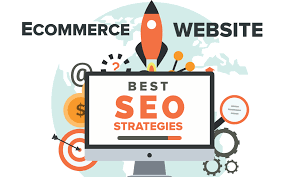The Importance of Ecommerce SEO Packages for Online Businesses
In the competitive world of ecommerce, having a strong online presence is crucial for success. One effective way to boost your visibility and drive organic traffic to your online store is through Search Engine Optimization (SEO). Ecommerce SEO packages offer a comprehensive solution to optimize your website and improve its ranking on search engine results pages.
What are Ecommerce SEO Packages?
Ecommerce SEO packages are tailored services that focus on optimizing various aspects of your online store to enhance its search engine visibility. These packages typically include a range of strategies and techniques designed to improve your website’s ranking on search engines like Google, Bing, and Yahoo.
The Benefits of Ecommerce SEO Packages
Investing in an ecommerce SEO package can provide numerous benefits for your online business:
- Increased Visibility: By optimizing your website for relevant keywords and phrases, you can improve your chances of appearing higher in search results, making it easier for potential customers to find you.
- Higher Organic Traffic: Improved search engine rankings can lead to an increase in organic traffic to your site, resulting in more visitors and potential customers.
- Better User Experience: SEO techniques such as optimizing site speed, mobile responsiveness, and user-friendly navigation can enhance the overall user experience on your website.
- Improved Conversion Rates: Targeted SEO strategies can attract high-quality traffic that is more likely to convert into paying customers, ultimately boosting your sales and revenue.
What Do Ecommerce SEO Packages Include?
Ecommerce SEO packages may vary depending on the provider, but they typically include the following components:
- Keyword Research: Identifying relevant keywords that potential customers are searching for.
- On-Page Optimization: Optimizing meta tags, headings, content, and images on product pages for better search engine visibility.
- Technical SEO: Improving site speed, mobile responsiveness, URL structure, and other technical aspects that impact search rankings.
- Link Building: Acquiring high-quality backlinks from reputable websites to boost domain authority and credibility.
- Content Marketing: Creating engaging and informative content such as blog posts, product descriptions, and guides that attract and retain visitors.
In Conclusion
Ecommerce SEO packages offer a comprehensive solution to enhance the online visibility of your store and drive targeted traffic that is more likely to convert. By investing in professional SEO services tailored to ecommerce businesses, you can stay ahead of the competition and achieve long-term success in the digital marketplace.
Top FAQs About Ecommerce SEO Packages: Pricing, Types, Benefits, and Implementation
- How much is an SEO package?
- What are the 4 types of SEO?
- Is SEO worth it for ecommerce?
- How do I SEO my ecommerce website?
How much is an SEO package?
The cost of an SEO package for ecommerce can vary depending on several factors, such as the scope of services included, the level of customization required, and the expertise of the provider. Typically, SEO packages are priced based on the complexity of the project and the specific goals of the client. It’s important to consider that investing in a quality SEO package tailored to your ecommerce business can yield significant returns in terms of increased visibility, organic traffic, and ultimately, sales. While price is a consideration, focusing on the value and potential results that a well-executed SEO package can bring to your online store is key in making an informed decision.
What are the 4 types of SEO?
In the realm of Search Engine Optimization (SEO), there are four main types that businesses often focus on to enhance their online presence and visibility. The first type is on-page SEO, which involves optimizing individual web pages with relevant keywords, meta tags, and high-quality content to improve search engine rankings. Off-page SEO, the second type, revolves around building backlinks from reputable websites to increase domain authority and credibility. Technical SEO, the third type, concentrates on optimizing website infrastructure and technical elements for better crawling and indexing by search engines. Lastly, local SEO targets geographic-specific searches to help businesses attract local customers effectively. By understanding and implementing these four types of SEO strategies, businesses can strengthen their online visibility and drive organic traffic to their websites.
Is SEO worth it for ecommerce?
The question of whether SEO is worth it for ecommerce businesses is a common one, and the answer is a resounding yes. Investing in SEO for your ecommerce store can yield significant benefits in terms of increased visibility, organic traffic, and ultimately, sales. By optimizing your website for search engines and implementing targeted strategies to improve your search rankings, you can attract more qualified leads, enhance user experience, and outperform competitors in the crowded online marketplace. In today’s digital landscape, where consumers rely heavily on search engines to discover products and services, prioritizing SEO for your ecommerce business is not just beneficial but essential for long-term success.
How do I SEO my ecommerce website?
Optimizing your ecommerce website for search engines involves a strategic approach to improve its visibility and ranking in search results. To SEO your ecommerce website effectively, start by conducting thorough keyword research to identify relevant terms that potential customers are searching for. Implement on-page optimization techniques such as optimizing meta tags, product descriptions, and URLs with targeted keywords. Focus on creating high-quality, unique content that engages users and encourages them to stay on your site. Improve site speed, mobile responsiveness, and user experience to enhance overall performance. Additionally, build a strong backlink profile through reputable sources to boost domain authority. Regularly monitor and analyze your website’s performance using analytics tools to make data-driven decisions for continuous improvement in SEO efforts.

